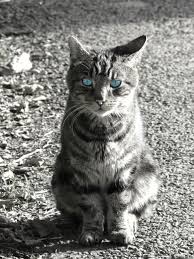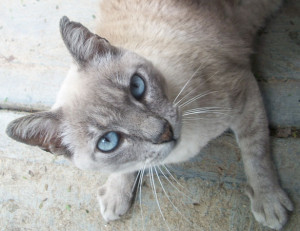Feral cats, also known as community cats, are unowned cats who live outdoors. Feral cats generally can’t live indoors because they are not social with humans. Instead, feral cats live outside with their cat families in a colony. In Ohio, all cats, regardless of where they are kept, are companion animals by law. Feral cats are entitled to the same legal protections as cats who are owned.
Criminal Liability for Feral Cat Caregivers

The issue of liability is a tricky one when it comes to caring for feral cats. Ohio law criminalizes any act of abandonment or neglect committed by the keeper of a companion animal… but at what point does feeding or providing shelter to a cat constitute becoming their keeper?
As the law is not entirely clear on this point, it is important to proceed with care to avoid criminal liability for abandonment or neglect. Some local communities may also have misguided ordinances that prohibit feeding or otherwise caring for feral cats. Our attorneys are committed to protecting well-meaning citizens from being penalized for providing charitable care to these animals in need.
Civil Liability for Feral Cat Caregivers
For any animal legally designated as “wild”, a policy of strict liability applies to its owner or caretaker. This means that the owner is held universally liable for any damage or physical harm caused by the animal at any time. But does this mean that we should avoid providing for feral cats out of fear for liability for damages?
Fortunately, most courts are reluctant to classify feral cats as “wild” for this reason and in Ohio, all cats are considered companion animals, but the risk of strict liability is greater in some areas than in others. By working with a legal professional to gain a greater understanding of the law, you can avoid being held accountable for any mischief caused by your feral neighbors.
Trap-Neuter-Return Programs

The origin of most feral cats is unknown. Some may have been the result of abandonment by a former owner. Some may have been produced as part of a litter caused by an owned, unaltered cat who was allowed to roam outside. Whatever the source, it is clear that the only humane and effective method of preventing the growth of a feral cat colony is the implementation of Trap-Neuter-Return. Trap-Neuter-Return programs help eliminate cat nuisance behaviors (like male cat marking/spraying) and overpopulation by humanely trapping, sterilizing, and returning members of a feral colony back to their outdoor homes.
Even though TNR generally eliminates nuisance behaviors, some people still may prefer not to have animals in their personal space. Fortunately, humane deterrents are available to help humans and cats or other outdoor animals live in harmony.
Before any group, individual, or city tries to implement a TNR program, it is important to take every possible step to protect those involved from criminal or civil liability. At Holland & Muirden, we offer thorough, up-to-date legal insight for designing humane Trap-Neuter-Return programs and ordinances that are effective.

